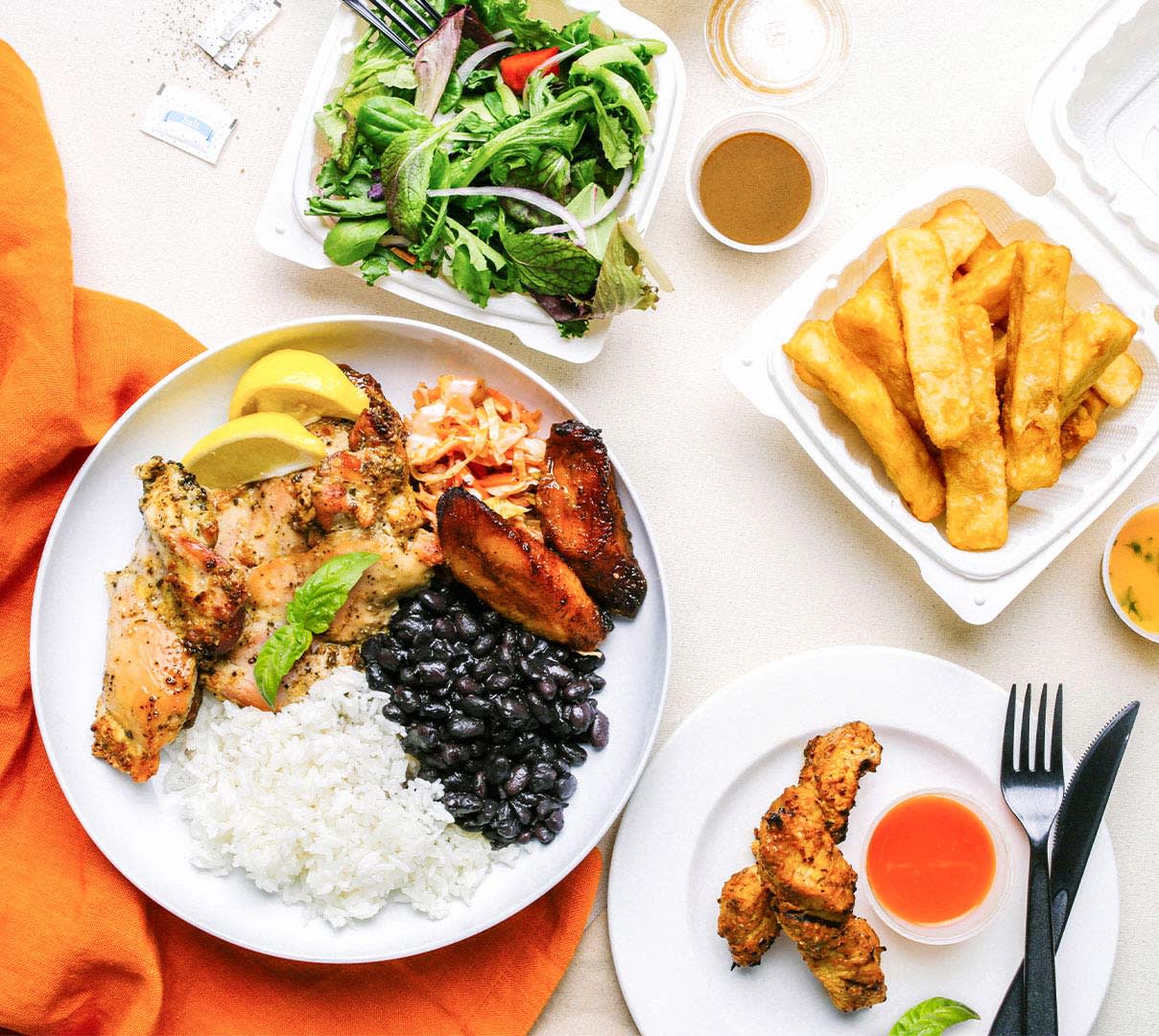Platforms like Instagram and TikTok can have a major influence on increasing customer traffic with enticing photography. That is why learning best practices for social media is crucial, particularly in how to shoot flat lay photography. But taking great food photos to show off your restaurant doesn’t have to be a complex process with elaborate specialized equipment. This comprehensive guide details how restaurants can produce very effective results with Android and iPhone food photography.
Food staging for social media
Staging food to be photographed means arranging the featured dish in the most attractive way possible. A best practice is to try to shoot your food from above — this is called flat lay photography and produces highly appetizing photos of foods like pizza, noodle dishes, and salad bowls. As a general rule, shooting flat lay works best for food that is horizontal in aspect. Foods with some height and verticality, like sandwiches, burgers, and beverages, are better photographed from the side. One tip to make vertical or taller foods more amenable to flat lay photography is to cut them in half if possible and then photograph from above.
How to take pictures of food
The main food item or dish needs to be the central focal point of the photo. It should be plated very cleanly and always prepared with the freshest ingredients to show it off at its best. This means that food staging will necessarily be a collaborative process with kitchen staff and whoever is taking the photographs.
The background of any photo needs to complement the food. As with plating, backgrounds should be clean and relatively uncluttered so the food is highlighted, but the background can still reflect your restaurant’s character and visual appeal. For example, a rustic background can work well with a restaurant with a farm-to-table ethos or brightly-hued backgrounds for a lively fast food eatery. It’s important to make your images stand out with some character and playfulness in order to capture fleeting social media attention.
Lighting for restaurant food photography
Ensuring your photographs are properly lit is especially important when maximizing your food’s appeal for social media. Using natural light is the best approach to use to create appetizing pictures, so choose natural light outdoors or near a window if at all possible. If natural light is not available, avoid the dullness of artificial lighting by using a ring light for soft, shadow-free, and neutral lighting. Remember, lighting defines the mood of each image, and that image should match the mood of the restaurant. Another good practice is to place any source of light opposite, or to the side, of where a diner would sit.
6 food photography tips for social media
Let’s dive deeper into specific tips to learn how to create social media photography that elevates your brand.
1. Embrace geometry
The key to an effective social media strategy is to stand out, and presenting unique geometrical layouts is one way to achieve this. Create compelling food photography with contrasting shapes, like arranging circular foods on square plates. Consider repeating shapes as a way to draw the eye of someone scrolling a social media feed, and be creative with playful shapes to add interest to photos.
2. Balance the photo
Balancing visual weight is also a key consideration when composing photographs, so pay attention to ensuring your design is properly balanced, with no one element drawing excessive focus. Space any particularly large objects across from each other, and avoid either side of the image featuring a preponderance of props or foods.
3. Welcome negative space
When food staging for social media, pay close attention to the space between different design elements, which is referred to as “negative” space. Using negative or white space to highlight different elements in a picture is a fundamental building block of design. Effective use of negative space means the mouthwatering nature of your restaurant’s food will pop more visually, and entice those scrolling through their feeds to stop and engage.
4. Experiment with contrast

As with the geometry of plating, restaurant food photography works best when individual ingredients and details are contrasted while still ensuring the entire photo works as a cohesive whole. Emphasize different elements within the shot to add visual appeal by experimenting with contrasting colors and textures. Again, the key is to stand out and attract eyeballs.
5. Use props to tell a story

In addition to the food you are highlighting, props will also strengthen creative composition. In restaurant food photography, try to match the look and feel of the central dish. The tools and raw ingredients used to make the recipe, like cast iron pans, a basket of fresh eggs, or a cutting board laden with fresh vegetables, can make great food photography props — as can table settings, plants, and linens. Another solid approach is to showcase hands in an image to add a human element to the photo.
6. Use editing and post-production tools

You don’t need to be a professional photographer to take effective pictures for social media. You can achieve excellent results simply with Android or iPhone food photography. Using commonly available smartphone features, you can get creative with filters and explore how you can enhance or crop existing images. That said, practice moderation with these tools, as overly saturated or doctored images can sometimes lose their fresh appeal and authenticity. Social media users have become especially savvy with the effects of post-production, so only do what you need to enhance photos while maintaining a realistic, accurate image of your dish.
Create restaurant food photography for social media
These food photography tips will elevate your restaurant’s social media feed with pictures that will stop people from scrolling past and drive engagement. As this guide details, putting this advice into practice doesn’t have to be overly complicated. To enhance your own efforts, DoorDash partners also receive a complimentary menu photoshoot, and these professionally-staged photos can be repurposed on your social media channels.
To make it even easier to shoot great food photography, download this free flat lay image kit with six templates to jumpstart your own creativity.





